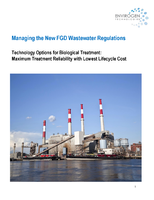IPC Advocacy helps shape SEC conflict minerals regulation.
Share:
Press Release Summary:
Conflict minerals rule approved by U.S. Securities and Exchange Commission (SEC) includes all key provisions for which IPC and its members have been lobbying. Specifically, regulation includes 2 year phase-in period during which conflict minerals may be identified as "conflict undeterminable" and permits companies to designate recycled or scrap minerals as "DRC conflict free" after conducting reasonable inquiry.
Original Press Release:
IPC Advocacy Helps Shape Final SEC Conflict Minerals Regulation
Treatment of Scrap and Recycled Materials and Phase-In Period Secured
BANNOCKBURN, Ill., USA - Following years of advocacy, IPC and its members are relieved that the conflict minerals rule approved by the U.S. Securities and Exchange Commission (SEC) today includes all of the key provisions for which the organization has been lobbying. Specifically, the regulation includes a two year phase-in period during which conflict minerals may be identified as of "conflict undeterminable," and permits companies to designate recycled or scrap minerals as "DRC conflict free" after conducting a reasonable inquiry.
The final regulation includes a phase-in period, as sought by IPC and other industries. The phase-in of two years for companies and four years for small companies will enable compliance infrastructures to continue to mature and provide companies with the flexibility to develop appropriate, supply chain-based due diligence processes. Critically important, the phase-in period contains a "DRC conflict undeterminable" category that allows companies to declare an unknown origin instead of disclosing that the minerals contained in their products are DRC conflict associated.
During the final months before the regulation was issued, IPC vigorously advocated for more reasonable provisions for recycled and scrap materials regulation. As IPC explained in a letter to SEC officials last month, "The details required in a CMR [conflict minerals report] are not available for recycled materials due to the various forms of recycling and thousands of consolidators, reclaimers, and scrap dealers both foreign and domestic." The final regulation requires issuers to conduct a reasonable inquiry in verifying recycled or reclaimed conflict minerals.
"The situation in the DRC is of deep concern to all of our members and the broader electronics industries," said Fern Abrams, IPC director of government relations and environmental policy. "We have worked with the SEC to encourage the implementation of regulations that meet the intent of Dodd-Frank without being unnecessarily burdensome."
IPC's successful advocacy included submitting three sets of written comments to the SEC, actively engaging with lawmakers and SEC Commissioners and staff, providing testimony before Congress, preparing a legal brief on SEC options, and conducting a comprehensive burden analysis.
IPC and its members have been actively involved in several initiatives to improve control and transparency in the mining and refinement of conflict minerals and to help the electronics industry prepare for compliance with the provisions of the Dodd-Frank Act. In addition, IPC has been an active participant in the Organisation for Economic Co-operation and Development (OECD) conflict minerals due diligence implementation program.
For more information on IPC's initiatives in the area of conflict minerals, visit www.ipc.org/conflict-minerals or contact Abrams at FernAbrams@ipc.org.
About IPC
IPC (www.IPC.org) is a global industry association based in Bannockburn, Ill., dedicated to the competitive excellence and financial success of its 3,100 member companies which represent all facets of the electronics industry, including design, printed board manufacturing, electronics assembly and test. As a member-driven organization and leading source for industry standards, training, market research and public policy advocacy, IPC supports programs to meet the needs of an estimated $2.02 trillion global electronics industry. IPC maintains additional offices in Taos, N.M.; Arlington, Va.; Stockholm, Sweden; Moscow, Russia; Bangalore, India; and Shanghai, Shenzhen and Beijing, China.




